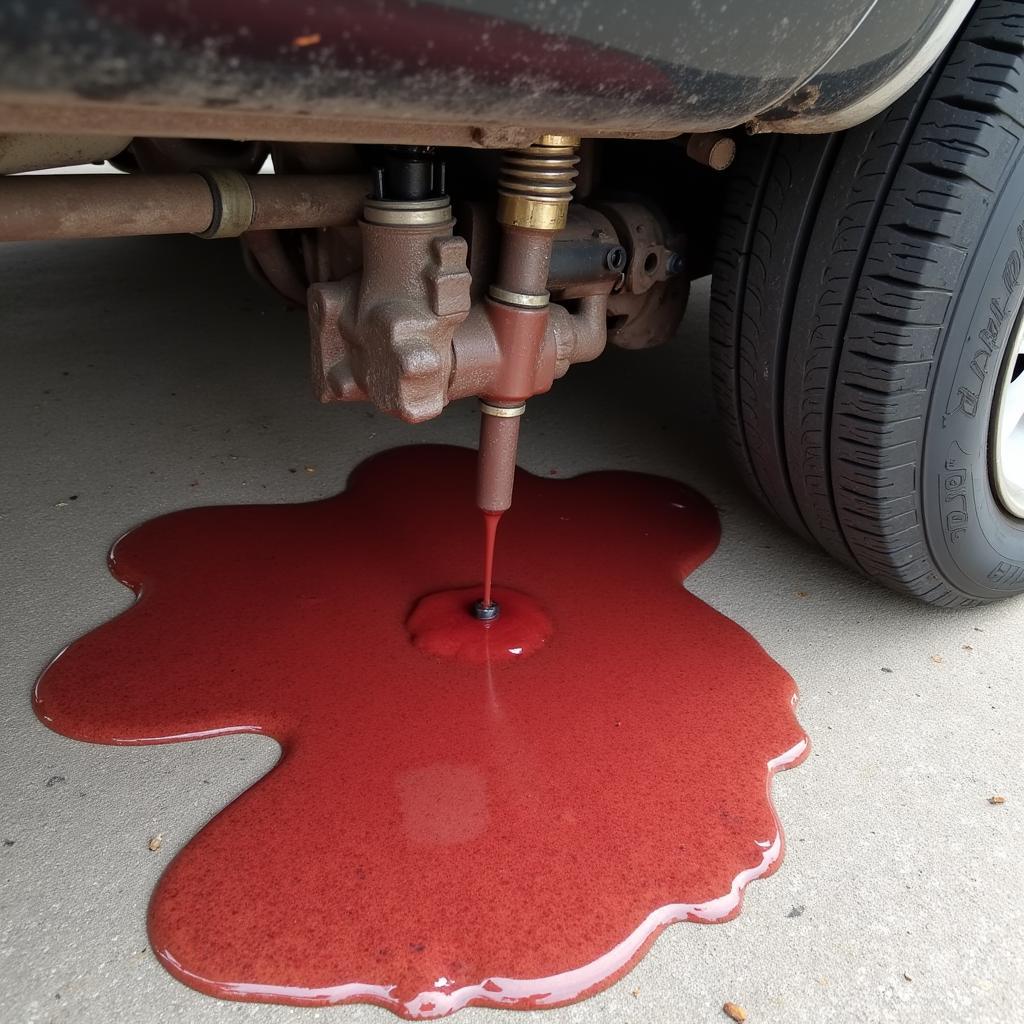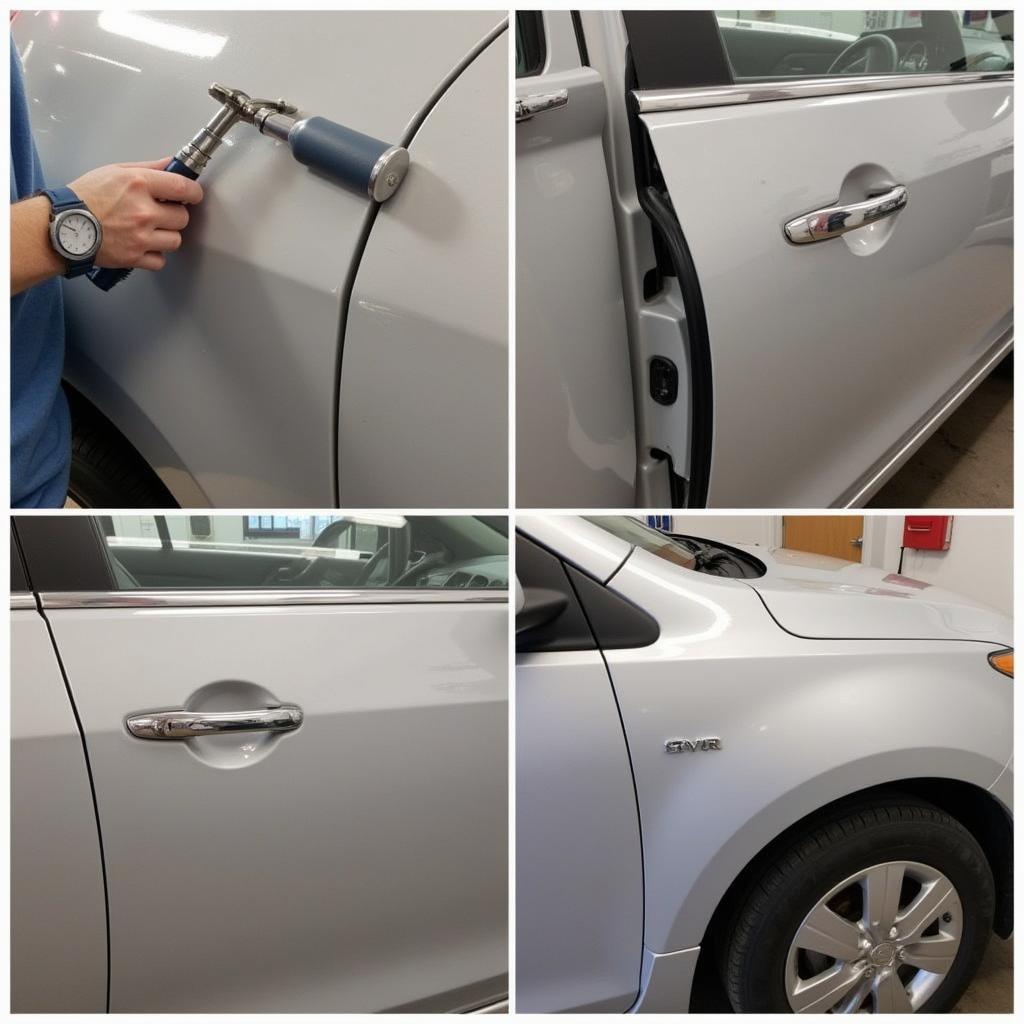Experiencing a reduction in car speed can be frustrating and concerning. This article dives into the common causes of reduced car speed and provides practical solutions to help you get back on the road quickly and safely. We’ll cover everything from simple DIY fixes to more complex issues that may require professional assistance. fix my car front bumper
A decrease in your car’s speed can stem from various mechanical problems, ranging from minor issues like a clogged air filter to more serious ones like transmission problems. Understanding the potential culprits is the first step towards rectifying the issue.
Identifying the Culprit Behind Reduced Car Speed
Pinpointing the exact reason why your car’s speed is reduced is crucial for effective troubleshooting. Several factors can contribute to this issue, and a systematic approach will help you identify the root cause.
Common Causes of Reduced Car Speed
- Clogged Air Filter: A dirty air filter restricts airflow to the engine, hindering its performance and leading to reduced speed.
- Faulty Fuel Pump: A malfunctioning fuel pump can disrupt the fuel supply to the engine, causing a decrease in power and speed.
- Transmission Problems: Issues within the transmission system can significantly impact your car’s ability to accelerate and maintain speed.
- Brake Problems: Sticking brake calipers or worn brake pads can create friction, reducing speed and potentially causing overheating.
- Exhaust System Restrictions: A clogged catalytic converter or other exhaust system restrictions can impede exhaust flow, leading to reduced engine performance and speed.
Troubleshooting and Fixing Car Speed Reduction
Once you’ve identified the potential cause, you can start troubleshooting and implementing the appropriate fix.
DIY Fixes for Car Speed Reduction
- Check and Replace the Air Filter: Inspect the air filter for dirt and debris. If it’s dirty, replace it with a new one. This is a simple and inexpensive fix that can often restore lost speed.
- Check the Fuel System: Inspect the fuel lines, fuel filter, and fuel pump for any leaks or damage. Replace any faulty components.
- Inspect the Brakes: Check for sticking brake calipers or worn brake pads. If you find any issues, address them promptly.
- Check for Exhaust Restrictions: Inspect the exhaust system for any blockages or leaks.
When to Seek Professional Help
While some fixes can be done at home, more complex issues require the expertise of a qualified mechanic. If you’re unsure about the cause of the problem or don’t have the necessary tools or skills, it’s best to seek professional help.
“Regular maintenance is key to preventing many car problems, including reduced speed,” says John Smith, a seasoned automotive engineer with over 20 years of experience. “Simple checks like inspecting the air filter and checking fluid levels can go a long way in keeping your car running smoothly.”
Maintaining Your Car to Prevent Speed Reduction
Regular maintenance is crucial for preventing car speed reduction and ensuring optimal performance.
- Regularly Check Fluid Levels: Ensure that all fluids, including engine oil, coolant, and brake fluid, are at the correct levels.
- Adhere to Scheduled Maintenance: Follow the manufacturer’s recommended maintenance schedule for oil changes, tune-ups, and other essential services.
- Inspect Tires Regularly: Check tire pressure and tread depth. Properly inflated tires with sufficient tread contribute to optimal fuel efficiency and performance.
how much does it cost to fix car front bumper
“Addressing car problems promptly can prevent them from escalating into more serious and costly issues,” advises Sarah Jones, a certified mechanic and automotive instructor. “Ignoring a minor speed reduction can lead to further damage and potentially leave you stranded on the road.”
how much to fix the front bumper of a car
Conclusion
Addressing car speed reduction requires a systematic approach, starting with identifying the potential cause and implementing the appropriate fix. While some fixes are simple DIY tasks, others require professional assistance. Regular maintenance is crucial for preventing car speed reduction and ensuring optimal performance. Remember, ignoring a minor speed reduction can lead to more significant and costly problems down the road. If you need further assistance, please contact AutoTipPro at +1 (641) 206-8880 or visit our office at 500 N St Mary’s St, San Antonio, TX 78205, United States. We’re here to help you get back on the road with confidence. How To Fix Car Speed Reduce is a common concern, and understanding the causes and solutions can save you time and money.
how much to fix front bumper on car
FAQ
- What are the most common reasons for a car to lose speed? Common reasons include a clogged air filter, faulty fuel pump, transmission issues, brake problems, and exhaust restrictions.
- Can I fix car speed reduction myself? Some issues, like replacing a clogged air filter, can be fixed at home. More complex issues require professional help.
- How can I prevent car speed reduction? Regular maintenance, including checking fluid levels, adhering to the manufacturer’s maintenance schedule, and inspecting tires, can help prevent speed reduction.
- What should I do if I notice my car is losing speed? Identify the potential cause, try basic troubleshooting, and if necessary, seek professional assistance.
- Is it safe to drive with reduced car speed? Driving with reduced speed can be unsafe, especially in traffic. It’s important to address the issue promptly.
- How much does it cost to fix car speed reduction? The cost depends on the underlying cause. A simple air filter replacement is inexpensive, while transmission repairs can be costly.
- Where can I get professional help for car speed reduction? Contact a qualified mechanic or visit a reputable auto repair shop.






Leave a Reply